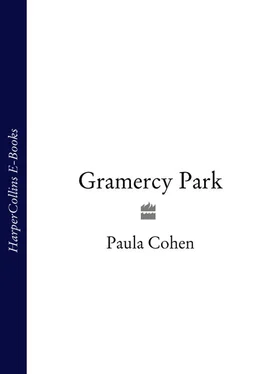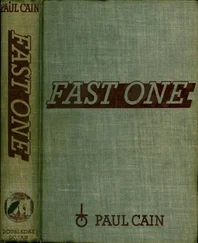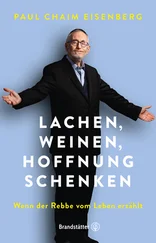“When was this?”
“About fifteen years ago. Fiorina—Mario’s youngest sister—was only five when it happened, and remembers nothing of it herself … but it’s still spoken of in the family from time to time.”
“Fiorina told you this?”
“Yes. She’s Mario’s favorite.” He stares down at his hands. “Mine too.”
Buchan’s lips twitch, but he chooses to ignore Stafford’s confession. “And the woman he wished to marry?”
“Fared badly, or so the family heard, although they tried to keep it from Mario. The landgrave did nothing to forward her career, nor had he ever intended to … that had been a ruse to get her into his bed, nothing more. He tired of her after about a year and passed her on to the captain of his guard, who kept her for several more months.” Dyckman lifts his shoulders. “After that she disappeared. I don’t know if Mario ever learned what became of her, or if he would care any longer, if he did. It was all a very long time ago.
“Once she was gone he threw himself into his singing, sang everywhere in Italy—all over Tuscany and Umbria, in Parma, Venice, Modena, Turin, Naples, Genoa, Bologna, Rome … everywhere. Began to make a name for himself in other cities, too—London, Paris, St. Petersburg. And then he met Verdi.
“Back in the early sixties, when Mario was a child, his father had been at the center of the Risorgimento in Florence. Leading local and sometimes national figures would meet at his house … the writer Manzoni and Verdi among them. Mario auditioned at La Scala in eighteen eighty, for the role of Alfredo in La Traviata. Verdi was at that audition. He’s a tough old bird, is Maestro Verdi, and he isn’t easily impressed, but he asked to meet Mario afterward. When they were introduced, and he found out that Mario was the son of his old comrade … well, it would have made no difference if he hadn’t had the voice, but between sounding like a god and being his father’s son …”
Dyckman smiles. “And the rest, as they say, is history.”
The chimes of Trinity Church ring out one o’clock, and Buchan rises from behind his desk. “Thank you,” he says, clapping the young man on the shoulder. “But that is enough history for one day. Will you join me for lunch? There’s a small restaurant nearby with an excellent cellar. I should like to hear what it’s like to be an American expatriate living in Europe.”
“Gladly. And I should like to know what you can tell me of Slade’s ward,” Dyckman says as he draws on his gloves. “Having been away for the past five years, I never even heard of her until yesterday. Who is she?”
“That, my dear young man, is a question to which many people would like the answer. I suspect, now that Henry Slade is dead, that only Thaddeus Chadwick really knows.”
“Is he likely to tell?”
Buchan snorts. “Thaddeus Chadwick does not give things away. There is a pretty price tag attached to everything he touches, even knowledge. Signor Alfieri will have to pay handsomely for that house if he really wants it.”
“He wants it, Daniel. I’ve never seen him like this before.”
“It may prove too dear even for him.”
Stafford shakes his head. “The price won’t matter.”
“Don’t be naïve; price always matters, even if only as a point of pride. On the other hand, what a thing costs is not always measured in money.”
“He will pay what he needs to buy the house.”
“But not if Miss Adler is not there, or so he has said. Therefore, what price do you assign to her? What is she worth?”
“All I can tell you,” Dyckman says as they make their way down the stairs, “is that for someone normally so reasonable, Mario becomes the most intractable human being once he has his heart set on something. Nothing sways him.”
“Ah, Stafford; I fear he has met his match in Mr. Chadwick. Well, this should prove an interesting contest. My esteemed colleague has evidently made up his mind that Miss Adler is not to be an issue in the sale of the house, and Signor Alfieri has his heart set on having her under his roof. Which of them will prove stronger in the long run, I wonder?”
Dyckman laughs, as they reach the sidewalk. “And what, pray tell, happens to the young woman caught between them?”
“She is pulled to pieces, of course,” Buchan replies, only half in jest, and taking Dyckman’s elbow, steers him into the rushing Manhattan river called Broadway.
HAD HE BEEN ASKED where he intended to go upon leaving Buchan’s office, Alfieri would have given no definite answer, but the vague response would not have been an evasion—nor would it have been a result of his discomfiture at Buchan’s hands, for he is far less discomfited than Dyckman believes. It would simply have been a true reflection of his state of mind, which seesaws between a soaring elation at being so completely unrecognized in this city that he can melt, unnoticed, into the madness of a Wall Street lunch hour, and a gnawing apprehension concerning the welfare of the child—for so he still considers her, despite Buchan’s denial—in the Slade house.
And yet the mere act of walking is the perfect answer to both moods, reinforcing his heady sense of liberty while diverting his mind. He begins, therefore, merely to walk, with no particular destination in mind; and because this simplest of all pleasures has been denied him for years, he studies everyone and everything in his impromptu journey—buildings, window displays, the dress, manners, speech, and gestures of his fellow pedestrians, the never-ending current of wagons, omnibuses, carts, and carriages jamming Broadway—with the greed of a starving man at a banquet and the smile of a discharged convict, causing more than one passing stranger to give him wide berth.
After a while, however, he settles upon a direction and bears northward at a leisurely pace, savoring his freedom, stopping here and there to enter a store and browse among the merchandise; even halting once on the crowded pavement to admire the sheer magnitude of the Post Office Building—a vast, layered wedding cake of a structure that dwarfs the simple, classical grace of City Hall immediately to its north—and to marvel at the swirling human stream, not the least specimen of which pays him any mind, unless it is to push impatiently past him as he slows the flow of traffic at this busiest of intersections.
His path up Broadway should lead him, eventually, right to the front door of the Fifth Avenue Hotel. It is a walk of slightly more than three miles, but he first takes a blissfully solitary midday meal in a dark little restaurant down a flight of steps, then simply loiters his way up the street. His frequent detours, his pauses, his brief excursions into this or that shop to inquire about some item in the window, or to make a small purchase to be sent on ahead—not out of any need, but solely for the pleasure of being at liberty to go into a shop like any other customer—take up the time, and it is nearly four o’clock when he reaches Union Square, where Broadway meets Fourteenth Street.
There, pleasantly tired, he seats himself on a bench and contemplates the final leg of his journey. In the last week, he has become sufficiently familiar with New York to be able to navigate its busiest streets more or less successfully. He knows, for instance, that to continue in a straight line up Broadway, which runs up the western side of Union Square, is to arrive at his hotel, now a mere nine blocks distant. But he also knows that to walk east, across the bottom of the square, and then one block further, is to come to Irving Place. And once on Irving Place, a left turn and six swift blocks will bring him to Gramercy Park.
Both wisdom and prudence dictate the former route and an uneventful arrival at his hotel. But his journey has left him quite drunk with forgotten spontaneity, and the amount of attention he has attracted on the street has almost convinced him that he has become invisible; and these facts, added to his still-lingering disquiet about the welfare of Miss Adler, and his sudden realization of her nearness, set up a siren song inside his head against which the sober claims of wisdom and prudence have small chance of being heard. Gramercy Park it is to be, if for no other reason than to put his concern to rest, once and for all, about his self-appointed protégée.
Читать дальше












